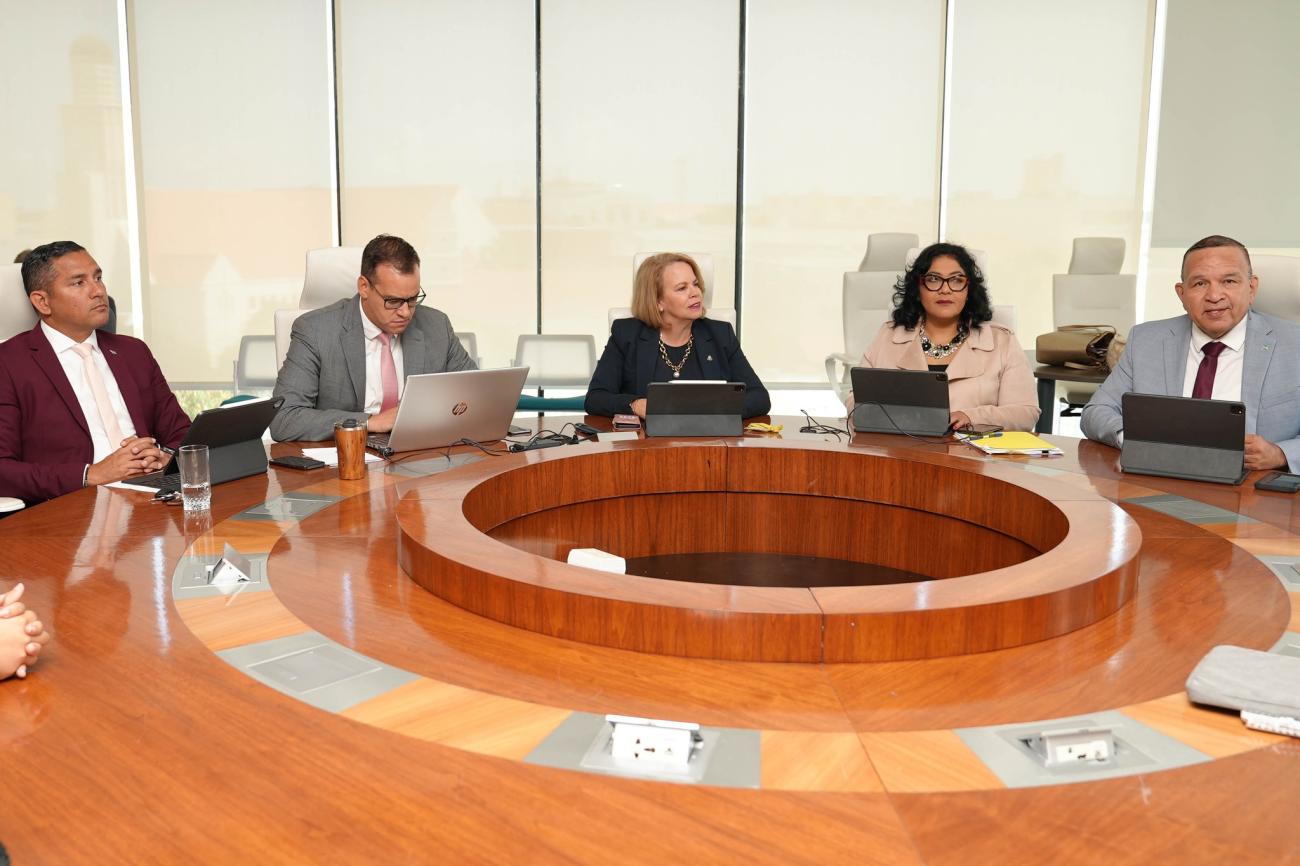How Aruba and Curacao Are Weaving the SDG Message into Public Information

𝐒𝐃𝐆𝐬 𝐚𝐫𝐞 𝐛𝐞𝐜𝐨𝐦𝐢𝐧𝐠 𝐭𝐡𝐞 𝐜𝐨𝐫𝐧𝐞𝐫𝐬𝐭𝐨𝐧𝐞 𝐨𝐟 𝐜𝐨𝐧𝐯𝐞𝐫𝐬𝐚𝐭𝐢𝐨𝐧𝐬 𝐨𝐧 𝐧𝐚𝐭𝐢𝐨𝐧𝐚𝐥 𝐝𝐞𝐯𝐞𝐥𝐨𝐩𝐦𝐞𝐧𝐭
The Caribbean countries of Aruba and Curaçao have made Agenda 2030 and the Sustainable Development Goals (SDGs) the cornerstone of their national development roadmap. Recognising that citizen engagement and education on SDGs is crucial, they will now embark on a communications drive to deepen public awareness about what the SDGs mean for individuals and how national policy priorities can be advanced at community level.
From October 2023 to March 2024, the UN Multi-Country Office in Port of Spain responsible for Trinidad and Tobago, Aruba, Curaçao and Sint Maarten, partnered with governments in Aruba and Curaçao to design a bespoke SDG Communications Strategy for each country, taking into account both islands' specific needs within the context of their public service communications practices and public information apparatus.
The resulting SDG Communications Strategies for Aruba and Curaçao encompass a menu of activities to improve SDG communications, including the establishment of an online SDG Knowledge Portal, the incorporation of SDG content into education at all levels of the national curriculum, and the integration of relevant SDGs into policies for every sector of national development.
Alongside the Strategy, each government was also equipped with an Investment Plan to tap into global development funding for SDG Communications initiatives and campaigns. A monitoring and evaluation framework was also created to support implementation of the Strategy and ensure continuous evaluation of the effectiveness of SDG-driven communications to the public.
"We know how valuable strategic communications can be in drawing attention to, and advocating for action on, national development priorities," explained the UN Resident Coordinator, Joanna Kazana. "If we ground our conversations about national development in the SDGs, we inspire an inclusive, whole-of-society approach to making Agenda 2030 a reality. This is why the UN is keen to partner with Aruba and Curaçao, harnessing the power of communications, mobilising communities and leaving no one behind."
To familiarise the key players with the Strategy and equip them with the tools to confidently communicate on the SDGs, a series of workshops and seminars was conducted for both islands.
In March, in Aruba, the workshop for the Council of Ministers was attended by the Prime Minister and members of her Cabinet, members of the SDG Commission, public officers from key Government ministries, civil society actors and private sector leaders.
"The training was useful in making the SDGs more tangible," said Frances Rugebregt, Policy Advisor at the Inspectorate of Health Aruba. "Having this blueprint gives me as a policy advisor some guidance on how to integrate the SDG goals into the different policies I write. It also gives me ideas to include it on our social media platforms and website. For the Aruban community to feel empowered to take charge of the SDG goals, it is important to keep the conversation going and to keep SDG topics relatable, simple, and concrete" said Rugebregt.
The uptake from civil society and business leaders was particularly robust, leading to the organisation of an extra training session to accommodate high demand for knowledge about the SDGs.
"It's amazing how many companies and public sector entities in the Caribbean are working within their own spheres of business and influence to promote sustainable development,” remarked Ms. Kazana. “There are great stories of sustainable development success to tell. With the Strategy, there is now a mechanism in place to systematically present the countries’ sustainable development commitments. Everyone should have their voice and “SDG language” to promote their many sustainable development initiatives. Acceleration is key and everyone can contribute to our collective journey to fulfilling the promise of Agenda 2030."
Public officials in Curaçao received similar training, remotely, from March 21- 22. They were particularly keen to link SDG data to Government messaging on sustainable development.
"The SDGs aim to transform our world" said Roxienne Albertina, Spokesperson for the Office of the Prime Minister in Curaçao. "They are a call to action to end poverty and inequality, protect the planet, and ensure that all people enjoy health, justice and prosperity. It is critical, and the aim is to leave no one should behind. On behalf of the Government of Curaçao we shall do our utmost to use the SDG Communications Strategy so that we can spread the message of the SDGs more effectively to the population."
The work on the strategy was led by the UN Communications and Advocacy Officer, Faine Richards, with support from independent consultant Pytrik Oosterhof.

